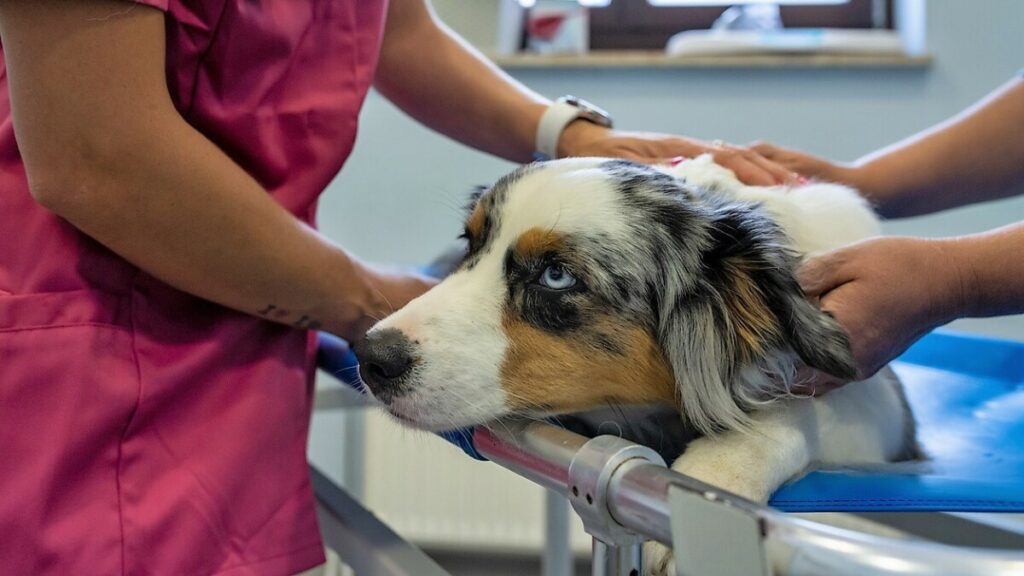Table of Contents
Respiratory issues in dogs can range from mild to severe and significantly impact their health and quality of life. Identifying and managing these conditions is crucial for your pet’s well-being. The best common respiratory issues in dogs strategies involve recognizing symptoms, seeking veterinary care, and following appropriate treatments. In this guide, we discuss seven common respiratory issues in dogs and their treatments.

Top Respiratory Issues in Dogs
1. Kennel Cough
Kennel cough is a highly contagious respiratory infection caused by the Bordetella bronchiseptica bacteria. Symptoms include a dry, hacking cough, sneezing, and nasal discharge. Treatment typically involves rest, hydration, and antibiotics if a bacterial infection is present. For more on kennel cough, visit PetMD Kennel Cough.
2. Canine Influenza
Canine influenza, or dog flu, is caused by the influenza virus and presents symptoms similar to human flu, including coughing, fever, and nasal discharge. Vaccination can help prevent infection, and treatment includes supportive care and antiviral medications. For more information, see AVMA Canine Influenza.
3. Pneumonia
Pneumonia in dogs can be caused by bacterial, viral, or fungal infections. Symptoms include coughing, difficulty breathing, lethargy, and fever. Treatment involves antibiotics or antifungal medications, and supportive care such as oxygen therapy may be necessary. For more on pneumonia in dogs, visit VCA Animal Hospitals Pneumonia.
4. Tracheal Collapse
Tracheal collapse is a condition where the trachea (windpipe) weakens and collapses, leading to breathing difficulties. Symptoms include a honking cough, trouble breathing, and exercise intolerance. Treatment may include weight management, medications, and in severe cases, surgery. For more on tracheal collapse, see PetMD Tracheal Collapse.
5. Allergies
Respiratory issues in dogs can also be caused by allergies to pollen, dust, mold, or other environmental factors. Symptoms include sneezing, coughing, and nasal discharge. Treatment involves identifying and avoiding allergens, and may include antihistamines or other medications. For tips on managing allergies, visit ASPCA Allergies.
6. Chronic Bronchitis
Chronic bronchitis is an inflammation of the airways that leads to persistent coughing and difficulty breathing. It is often caused by long-term exposure to irritants such as smoke or dust. Treatment includes medications to reduce inflammation and manage symptoms, and avoiding exposure to irritants. For more on chronic bronchitis, visit VCA Animal Hospitals Bronchitis.
7. Heartworm Disease
Heartworm disease, caused by parasitic worms living in the heart and lungs, can lead to severe respiratory issues. Symptoms include coughing, difficulty breathing, and fatigue. Treatment involves medications to kill the worms, and prevention through regular heartworm preventatives is crucial. For more on heartworm disease, see American Heartworm Society.
Conclusion on Common Respiratory Issues in Dogs
Understanding and addressing respiratory issues in dogs is essential for their health and well-being. By recognizing symptoms early and seeking veterinary care, you can effectively manage these conditions. Following these tips on common respiratory issues in dogs will help ensure your pet remains healthy and comfortable. For more advice on pet care, check out our Pet Care Guide.
FAQs on Common Respiratory Issues in Dogs
What are common signs of respiratory issues in dogs?
Common signs include coughing, sneezing, nasal discharge, difficulty breathing, and lethargy. If you notice any of these symptoms, consult your veterinarian.
Can respiratory issues in dogs be prevented?
Some respiratory issues can be prevented with vaccinations, regular veterinary check-ups, and avoiding exposure to allergens and irritants. Preventive medications can also help, such as heartworm preventatives.
How is kennel cough treated?
Treatment for kennel cough typically includes rest, hydration, and antibiotics if a bacterial infection is present. In severe cases, cough suppressants and other medications may be prescribed.
What should I do if my dog has difficulty breathing?
If your dog has difficulty breathing, seek veterinary care immediately. Breathing difficulties can indicate a serious condition that requires prompt treatment.
Can allergies cause respiratory issues in dogs?
Yes, allergies to pollen, dust, mold, or other environmental factors can cause respiratory symptoms such as coughing, sneezing, and nasal discharge. Managing allergies involves identifying and avoiding allergens and may include medications.
How often should I take my dog to the vet for respiratory health?
Regular veterinary check-ups are important for monitoring your dog’s respiratory health. Annual or bi-annual visits are recommended, but consult your vet for a schedule tailored to your dog’s needs.











